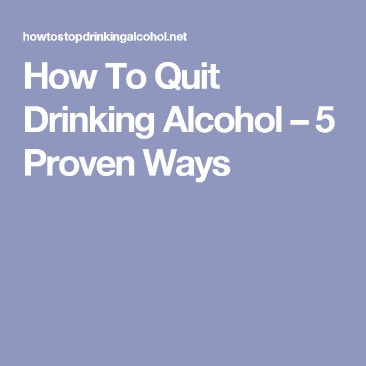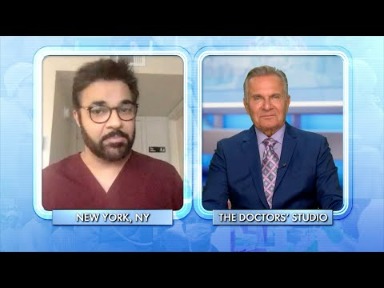With 24-hour care, this is the most intensive form of treatment and typically entails 30, 60 or 90-day programs. Alcohol affects multiple bodily functions that results in alcohol withdrawal when attempting to stop. First and foremost, excessive drinking excites and irritates the central nervous system. Alcohol has a sedative effect on the brain in which it suppresses certain neurotransmitters, causing people to feel at ease after drinking. This is why when consuming alcohol, people experience initial feelings of happiness, increased sociability, and relaxation.

The recovery process doesn’t end after 90 days of treatment. The transition back to life outside of rehab is fraught with the potential for relapse. Aftercare resources such as 12-step groups, sober living homes and support for family and friends promote a life rich with rewarding relationships and meaning. Overcoming an alcohol use disorder can be stressful. Excessive drinking over a long period of time causes serious physical and psychological distress.
Get Help For Alcoholism
While recovery from alcohol dependence isn’t an easy journey, it’s certainly a worthwhile one. Regardless of when you choose to take a break, there are more and more socially condoned opportunities to see what it’s like to drink less alcohol. The health benefits of even a month without alcohol may surprise you.To manage it as safely as possible, your doctor may refer you to a detoxification clinic or other specialty treatment center. But to quit in the safest way possible, you’ll want to consult a doctor first. Everyone’s physiology is unique, and dropping alcohol cold-turkey can be life-threatening. Rethinking Drinking – Tools to help you check your drinking patterns, identify signs of a problem, and cut back. You aren’t to blame for your loved one’s drinking problem and you can’t make them change.

A counselor can help you develop personalized strategies to get sober. Counseling can be simple or intensive depending on the severity of your drinking problems.This is of particular concern when you’re taking certain medications that also depress the brain’s function. It’s common for people with a mental health disorder such as anxiety, depression, schizophrenia or bipolar disorder to have problems with alcohol or other substances. People who begin drinking — especially binge drinking — at an early age are at a higher risk of alcohol use disorder. Because denial is common, you may not feel like you have a problem with drinking. You might not recognize how much you drink or how many problems in your life are related to alcohol use. Listen to relatives, friends or co-workers when they ask you to examine your drinking habits or to seek help. Consider talking with someone who has had a problem drinking, but has stopped.If your goal is to reduce your drinking, decide which days you will drink alcohol and how many drinks you will allow yourself per day. Try to commit to at least two days each week when you won’t drink at all. Tell trusted family and friends about your plan to quit or cut back on alcohol. When those around you are in the know, it can help them know not to offer you drinks.
Support Is Within Reach
This adjustment period causes the painful side effectsof alcohol withdrawal, such as shakes, insomnia, nausea, and anxiety. There is no known cure for the kindling effect, just as there is no cure for addiction or mental health disorders. While addiction to alcohol must initially be addressed through inpatient or outpatient care, aftercare programs are just as important to maintain recovery. Aftercare is an integral component of alcohol treatment programs that comes after outpatient treatment.

“Try doing a ‘dry’ month like Dry January, Go Dry for July or Sober October,” says Moore. Cutback Coach uses a psychology-based approach to help you drink more mindfully. Get a custom plan based on your current drinking habits and goals, then daily text messages help you track progress and stay on target.But maybe you’re not sure about quitting completely and don’t want to hold yourself to that goal. Self-help books can boost your confidence and motivate you to stay sober. They provide strategies and tools to help you maintain sobriety.
Getting Help For Alcohol Problems
Every relapse and subsequent detox from alcohol becomes more intense and painful. The kindling effect causes a patient to experience more severe withdrawal symptoms after each relapse. Subsequently increasing the risk of seizures and a potentially dangerous condition called delirium tremens. In addition to getting rid of alcohol from your surroundings, you can also replace it with some other beverage to fill in the void left by alcohol. Lemonades, hot chocolate, or even sparkling water with chopped fruits and herbs can be a great replacement drink.

Several medicines can help you quit drinking by getting rid of the craving for alcohol and blocking its effects. Ask your provider if one may be a good choice for you. Whether you are trying to reduce your alcohol intake or quit drinking altogether, there are apps to help you succeed. We have searched through apps aplenty to bring you the best stop drinking apps based on their design, usability, user ratings, and ability to help you reach your target. Over the long- or medium-term, excessive drinking can significantly alter the levels of these brain chemicals. This causes the body to crave alcohol in order to feel good and avoid feeling bad. Our website services, content and products are for informational purposes only.
Alcodroid Alcohol Tracker
With a realistic strategy, support and faith, you can quit drinking and beginalcohol recovery. If you know someone who has successfully quit drinking, speak with them. Ask them how they finally came to terms with their problem and how they were initially approached.
- This is of particular concern when you’re taking certain medications that also depress the brain’s function.
- Alcohol detoxification is ideally carried out under the supervision of healthcare providers to mitigate the risks involved by this process.
- But when it’s hard to face challenges without alcohol, it’s worth considering whether drinking prevents you from finding more helpful ways of managing emotions.
- Alcoholic support groups, such as Alcoholics Anonymous, provide free help for people struggling to quit drinking.
Citing specific examples of the effects of someone’s drinking are more effective than giving an ultimatum. 10 Ways To Help An Alcoholic Family MemberEven though things may seem helpless, they aren’t. There are many ways that you can help an alcoholic family member. There are quite a few apps around that can help you track the number of days you’ve given up something, but I’d say the top-rated‘I Am Sober’ is the best. As well as reading the book, I also attended Allen Carr’s Easyway to Give Up Alcohol workshop in London .Say you don’t have any cravings when you go without drinking. All the same, “a quick drink” often turns into three or four drinks. When you’re having a good time, you find it hard to stop, especially in the company of friends having the same amount. Alcohol use disorder can feel overwhelming, but there are many approaches to treatment that have been proven to work. If you worry about your drinking or a loved one’s drinking, ask for help from a physician, therapist, or addiction specialist. The National Institute on Drug Abuse maintains a list of Principles of Effective Treatment, which states basic information about overcoming addiction with help from professionals. While the list states that no single form of treatment is appropriate for everyone, there are basic steps that anyone struggling with addiction, including to alcohol, can benefit from.But regardless of the treatment program’s length in weeks or months, long-term follow-up care is crucial to your recovery. The app store on your cellphone has several sobriety apps that can inspire you to quit drinking and stay sober. Some apps help you keep track of alcohol intake or sobriety dates.
